Location & Language Selector
Please select location or visit OUR GLOBAL MERIDA WEBSITE
NINETY-SIX
Light and ruthlessly efficient
Today’s XC, marathon and stage racecourses get more and more demanding with regards to difficulty and steepness of descents, the roughness of the terrain and the punchiness of climbs, clearly asking for the rule book of short travel race bikes to be re-written. On top of that, there is a growing group of riders who are looking for lightweight trail bikes that combine the climbing and sprinting ability of an XC race bike with the trail capability of a trail bike.
For us, it was time to look at our Ninety-Six and create a new and exciting reincarnation of our former proven World Cup XC and marathon machine.
The new feature-loaded Ninety-Six inherits the forward-surging race genes of the old Ninety-Six and combines it with readiness and ability to tackle today’s demanding XC and marathon courses. The hugely capable 2021 frame platform is the perfect basis for a fun-packed, fast and trail-loving short-travel full-suspension machine.
The new Ninety-Six is a super modern cross country race bike - a bike that is much more capable downhill than its predecessors. The key reason for this is that cross country races have become far more demanding over the last few years, as well as riders expecting much more downhill performance from a bike in this category as they did a few years ago.
Worldwide, the cycling press is even talking about a new category - down-country bikes. Down-country bikes are as light as possible, to climb even the steepest mountains with ease, but also able to handle challenging trails with more panache, as the travel numbers would suggest.
The Ninety-Six is available in two configurations - a more classic cross-country (Ninety-Six RC 10K) or a down-country (Ninety-Six) setup. The RC models have a 100 mm fork in the front, super fast rolling tyres and a lighter front brake. The (non RC) Ninety-Six models have 120 mm in the front, grippier tyres and a more powerful front brake.
However, whichever model you look at, they all have improved downhill capability due to the updated geometry and the more progressive suspension configuration. The Ninety-Six can be used as a long-distance endurance bike, where two water bottles are always an advantage, as a super-light trail bike, or as a classic cross-country race bike.
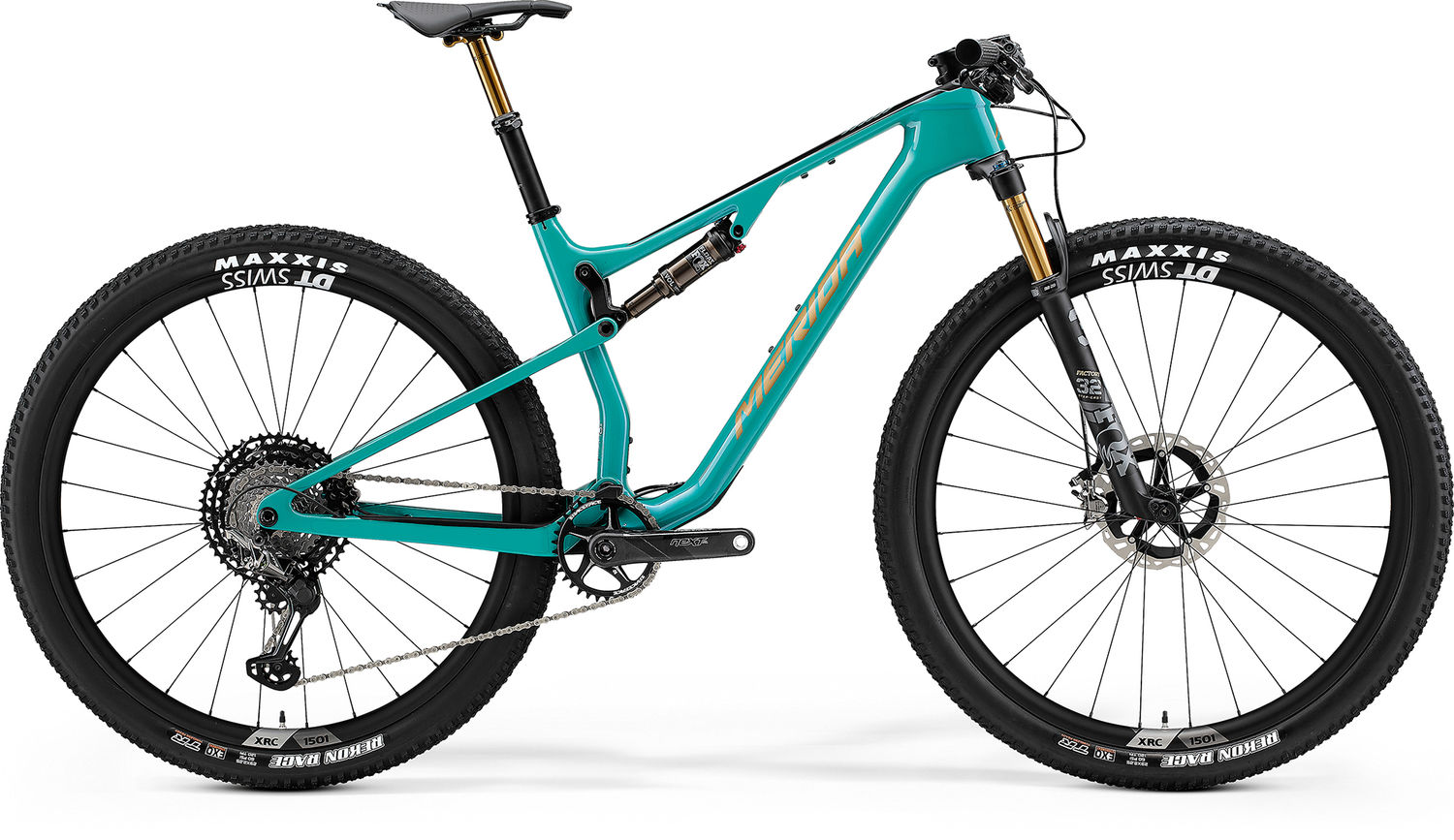
FEATURES
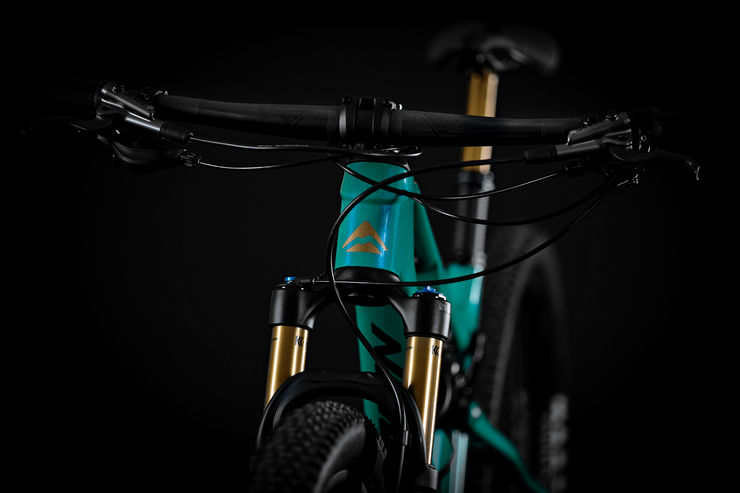
Two versions
Available in two versions. The more race-focused RC version with 100 mm fork travel and the more trail orientated version with 120 mm upfront. The longer fork does not just offer the ability to handle rough trails better, but it also slackens the head angle and gives the bike a more playful character. Both versions are based on full carbon frames.
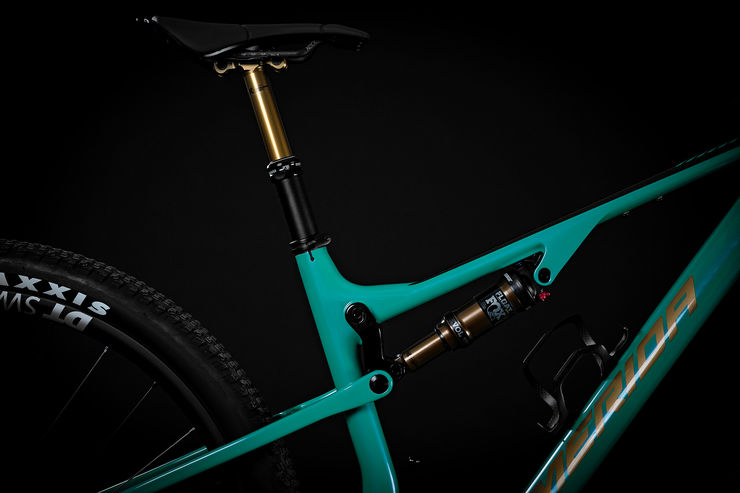
P-Flex flex pivot
To save weight and further improve the frame stiffness, we have removed the seat-/chainstay pivot point. Instead of a classic bearing, the material properties of the frame allow sufficient flex without having an impact on durability.
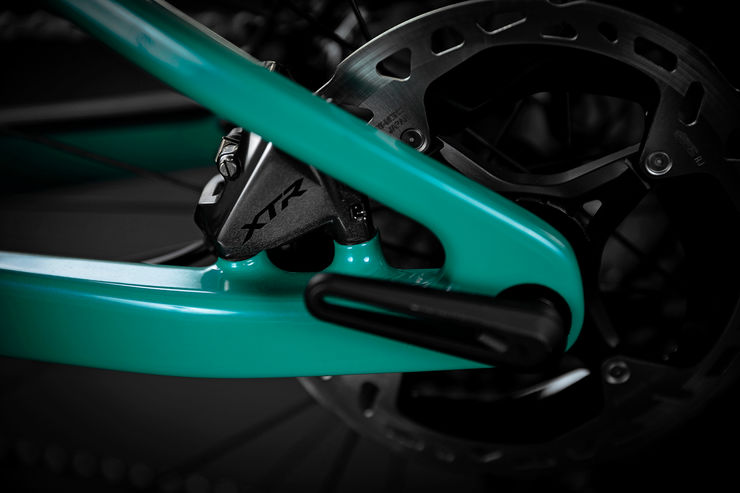
Flat mount rear brake
Due to the lack of a rear pivot point and the introduction of the ‘P-Flex’ flex pivot, we have given the seat stays as much space as possible to act as a leaf spring. To do that, we have equipped the Ninety-Six with the smaller and less bulky flat mount rear brake. The brake is easier to adjust than the post mount brake and allows for a more straight-lines shape of the seat stays.
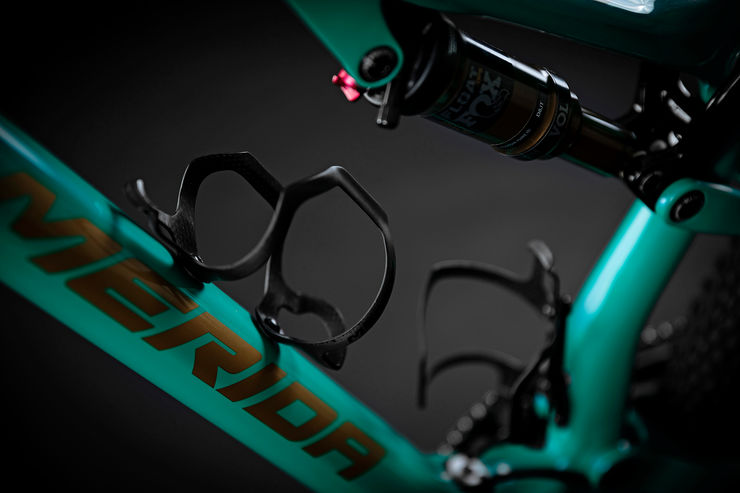
Two water bottles
One big wish from race legend José Hermida was that two water bottles could be fitted into the front triangle. To fulfil that, and without having an impact on the seat post insert depth, we are using a unique adapter on the lower part of the seat tube. This gives us the ability to fit two big water bottles into the frame without affecting the ability to use long travel dropper posts or making the bottles difficult to reach. Perfect for long marathon races and extended trail sessions.
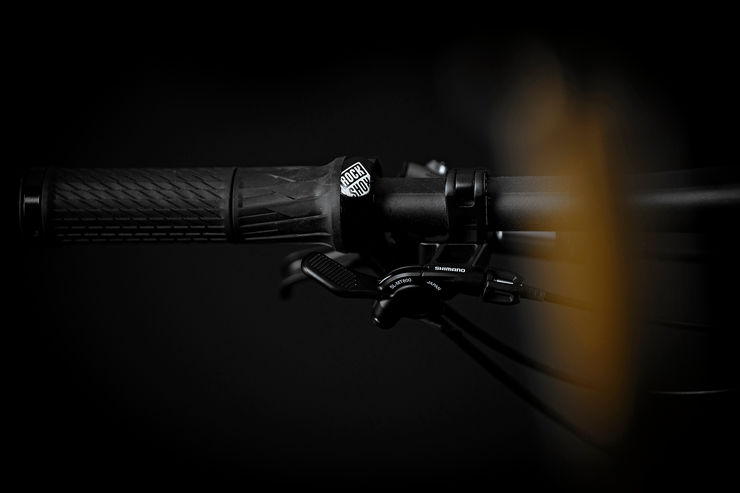
Twistlock lockout
To give the rider maximum control over the lockout function while offering the preferred paddle actuated dropper post, we have specced the Ninety-Six with the super intuitive Twistlock lockout from SRAM. A simple twist locks out the shock, while an easy to reach release button opens the shock back up again. Fast, simple and less cockpit clutter.
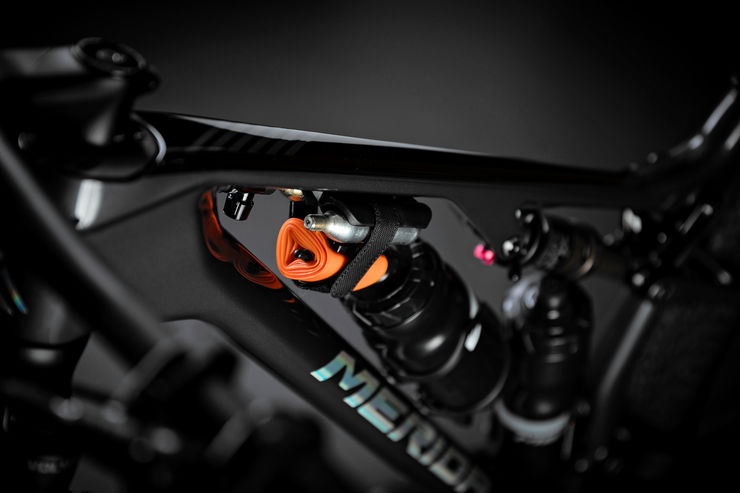
Trail mount
An additional fixing point below the top tube that offers the option to attach a spare tube, tool or small spare parts safely and securely.
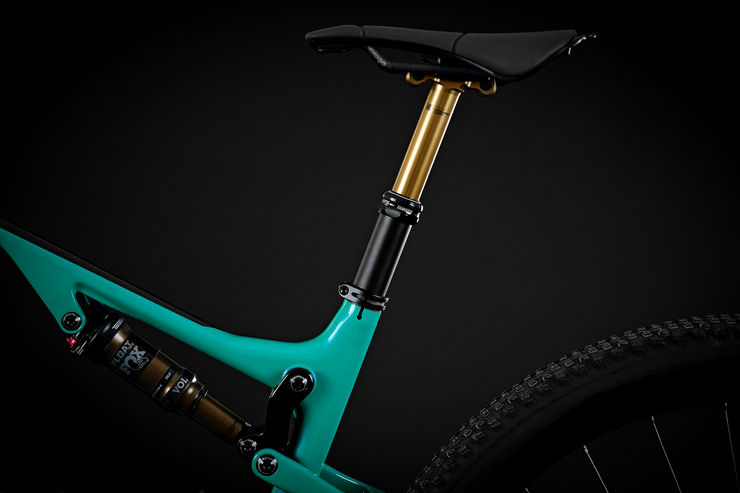
Longer insert depth
To allow longer dropper posts to be fitted we have created the Ninety-Six frame with extended insert depth. This allows us to fit a 170 mm dropper post into a size large frame on the down-country specific Ninety-Six, giving the rider maximum control and manoeuvrability on rougher terrain.
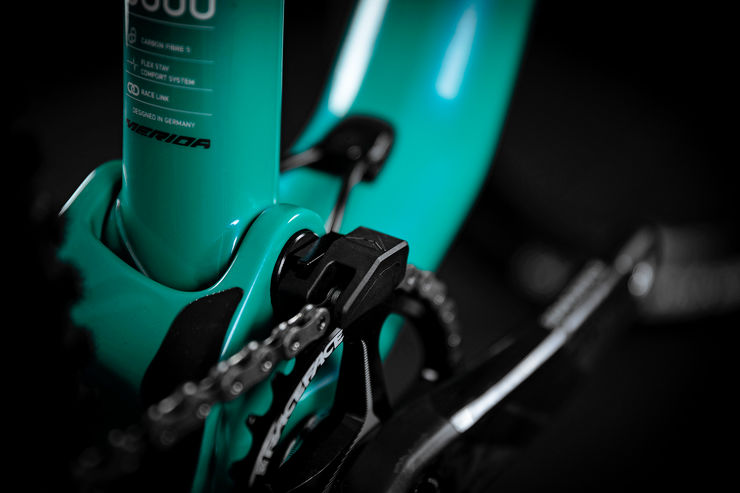
Merida chain guide
Today’s demanding course push man and machine to its limits. To reduce the risk of chain drop, we have developed a Merida chain guide. It is extremely light and small in appearance while making sure that the chain stays perfectly in place. It is adjustable to various chainring sizes and maintains its minimalistic appearance whatever the chosen chainring size.
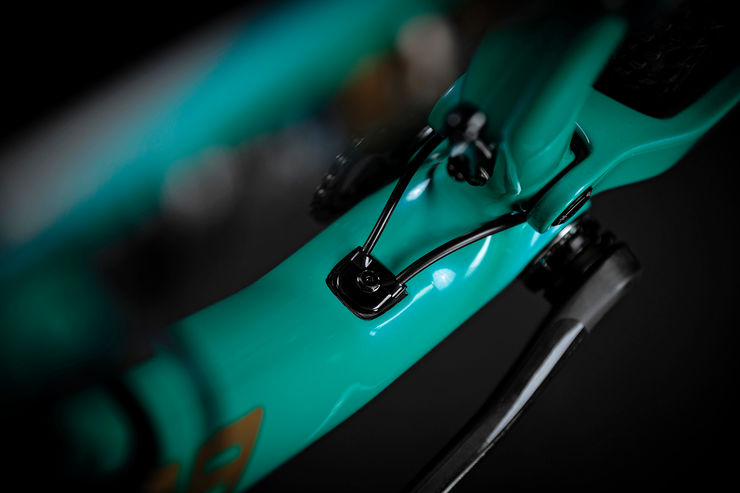
Threaded bottom bracket BSA
For easy maintenance the Ninety-Six comes with outbound threaded bottom brackets, making last-minute bottom bracket changes fast and straightforward.
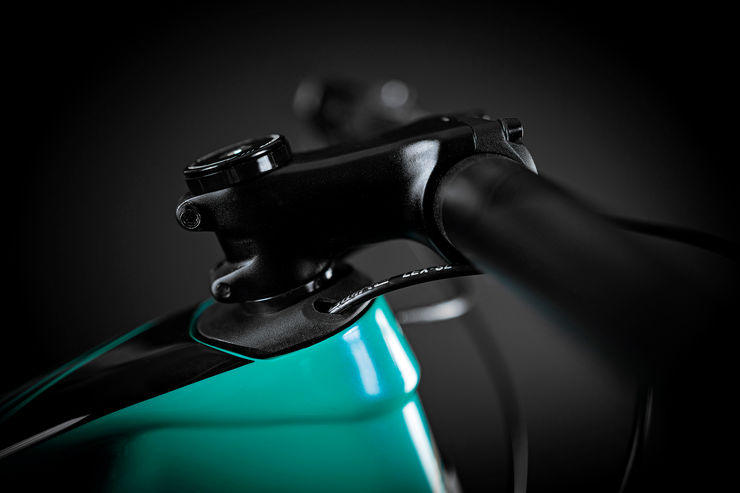
Wire Port headset
All control cables like gear, brake and dropper post cable enter the frame through a specifically shaped headset cap, cleaning up the cockpit area while also keeping them out of harm’s way. Only the internally routed cable for the rear shock lockout enters the frame directly into the top tube for extra smooth lockout action.
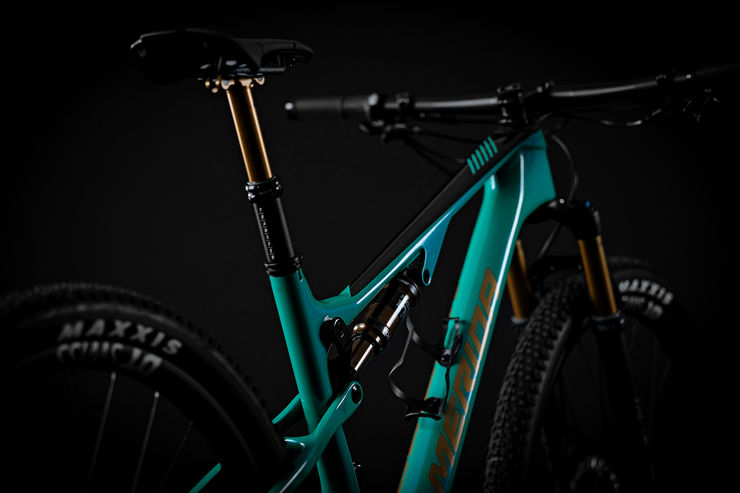
Modern down-country geometry
In line with today’s more demanding and aggressive XC racecourses as well as the rising interest in light yet capable short-travel bikes of the 'down country' segment, we have slackened the head angle by 1.5° (trail version even 3°), increased the reach, lowered the bottom bracket and standover height and steepened the seat angle by 1.5 - 2°.
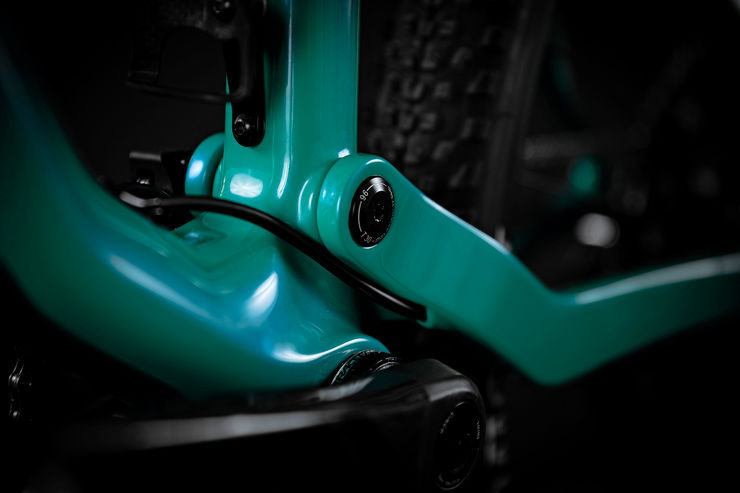
Non-Slip Tightening
‘Non-Slip Tightening’ was first introduced at our One-Twenty A big advantage of this system is that all pivot bolts can be tightened and untightened from just one side with a Torx 30 key and there is no need to fix the opposite side of the bolt either. This is just a small detail, but everybody who services their own bike knows the advantage of this time-saving system.
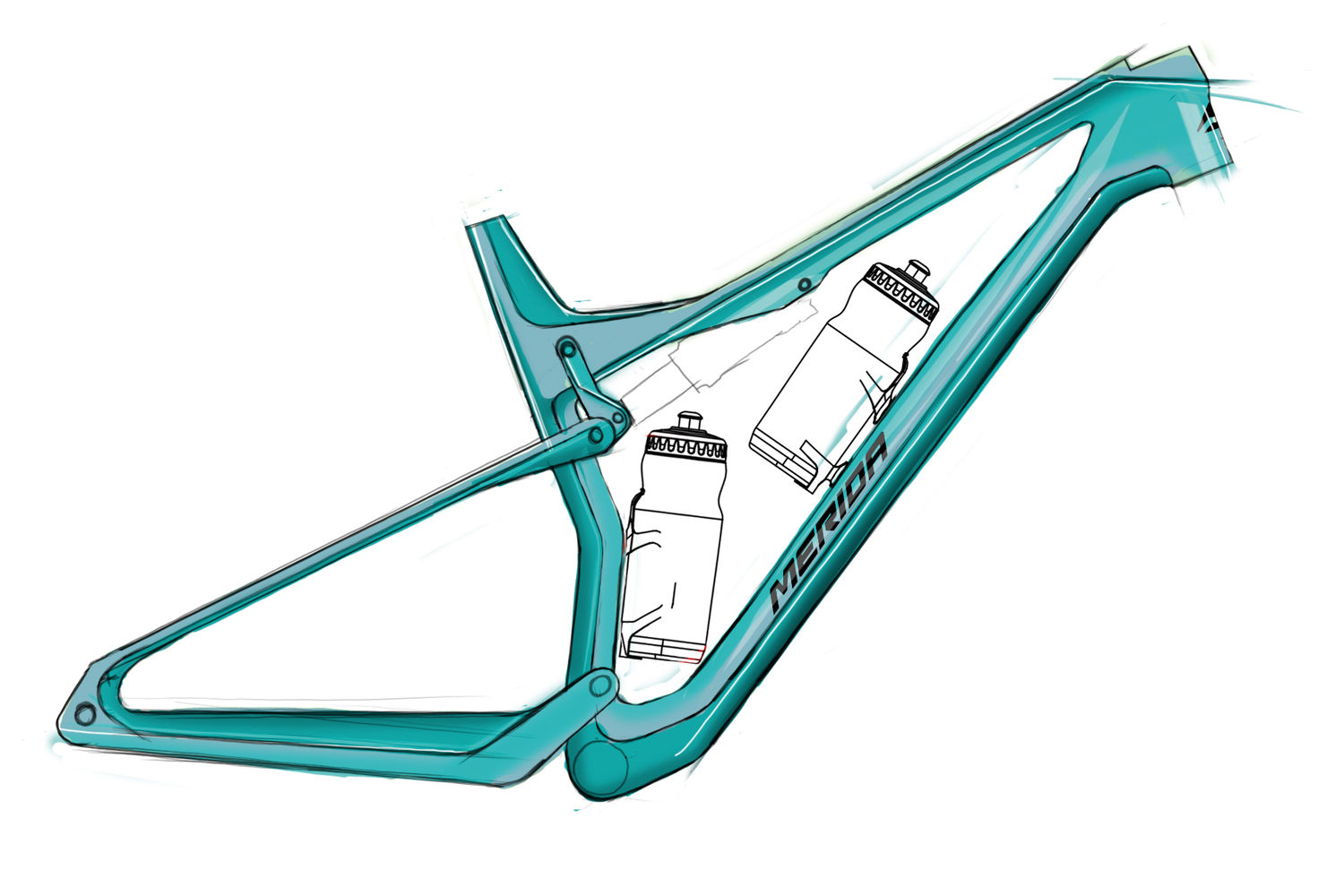
GEOMETRY AND SUSPENSION PLATFORM
To get the latest Ninety-Six ready for today’s challenges, we looked at a long list of features in the development process. Besides the ones mentioned before, we paid particular attention to the geometry and the unique suspension platform.
In the old days, the main focus for an XC race bike was outstanding climbing performance. Today the downhill performance becomes more important as courses become more demanding not just on the way up, but even more so, on the way down. To improve the downhill performance, we have tweaked the geometry by making the head angle 1.5° slacker (in the trail version even 3°), by increasing the reach (from 449 mm to 473 mm on a size L frame) and by lowering the bottom bracket and stand over height. All this makes the bike more stable, and allows more space to manoeuvre on the bike. But not only the downhill related parameters have become more modern. The seat angle is at least 1.5° (and on some sizes even 2°) steeper, making it easier to put more pressure through the pedals.
But a good geometry is nothing without a perfectly working suspension platform. Compared to the last generation, the latest Ninety-Six III leverage ratio is more progressive. The progression is more than 7% which perfectly matches the small air chambers of cross-country shocks. The higher ratio at the beginning of the travel makes the suspension sensitive to small impacts, and the progression gives it great support in the mid-travel. On top of that, we have introduced the unique P-FLEX system. The P-FLEX system has no seat-/chainstay pivot point, which has a positive effect on weight as well as stiffness. The material properties of the frame and the leaf-spring-like frame design allow sufficient flex without having an impact on durability.
Both elements, geometry and suspension, work in perfect harmony and create the most capable, supportive and most likely fastest Ninety-Six in our history.